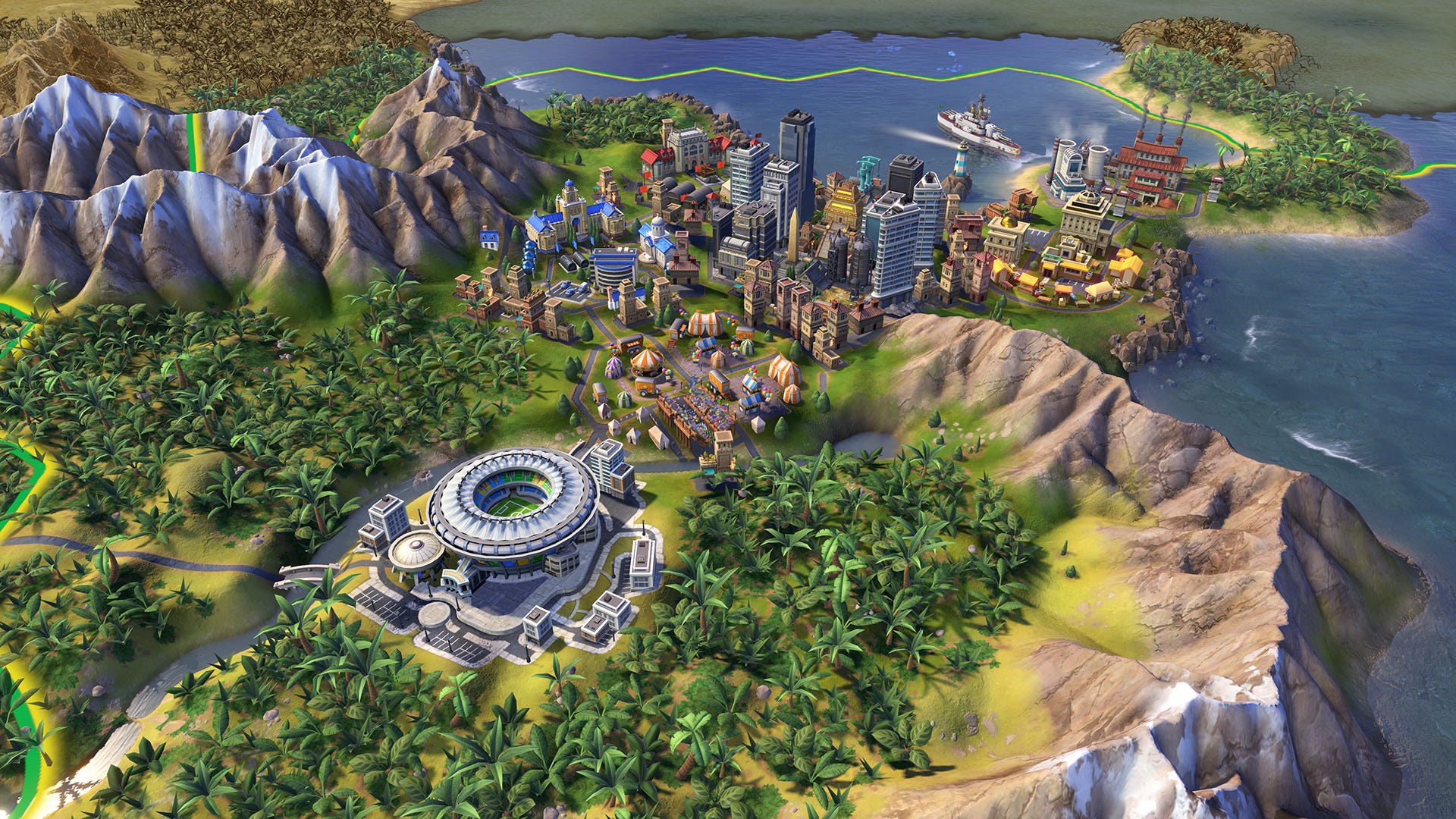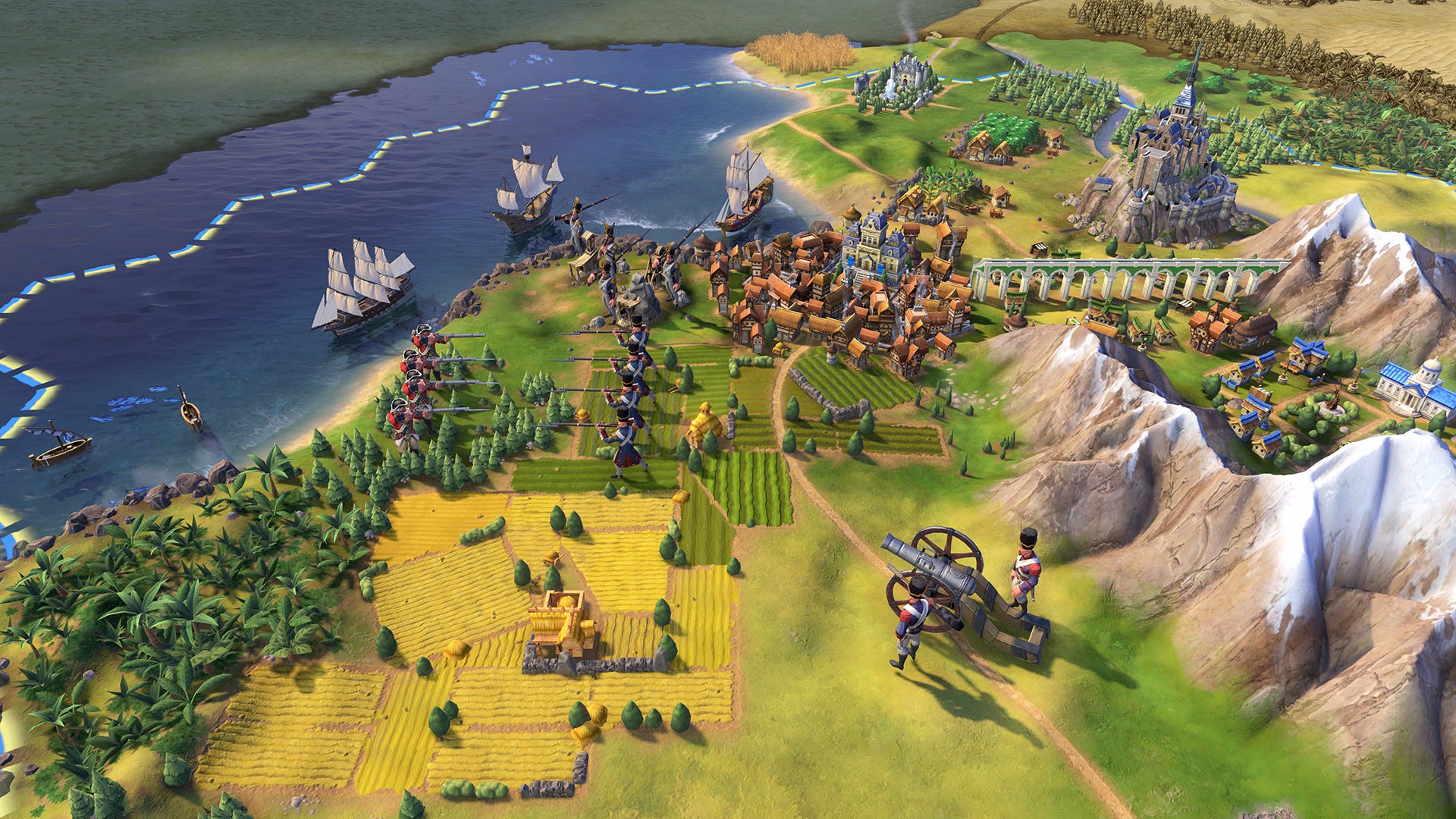by MATTHEW GAULT
War is an extension of politics in Sid Meier’s latest strategy game
Queen Gorgo had spent hundreds of years expanding Greek territory. What began as a small settlement along a mighty river now ruled the southern expanse of a vast continent.
The poor Holy Roman Empire, stuck between Greece and the northern realms, quickly ran out of space for its people. While Emperor Barbarossa suffered, Greece built trading relations with its neighbors and kept barbarians at bay with muskets.
Gorgo, meanwhile, had technology the rest of civilization only dreamed of and she used it to keep her people happy, wealthy and well-fed.
Then, despite explicit promises made through diplomatic channels, Barbarossa began building settlements along Greece’s northern border. Gorgo understood why — there wasn’t enough land left on the continent and the Holy Roman Empire needed to expand somewhere.
Gorgo gave Barbarossa the benefit of the doubt and made him promise not to build any new settlements within so many miles of Grecian borders.
Then the read-bearded monster did it again — and Gorgo took Greece to war. It went on for 200 years and set back both civilizations for centuries. As the war dragged on, Barbarossa sacrificed thousands of troops and Gorgo razed several cities, taking the fight all the way to the Holy Roman Empire’s capital.
But she couldn’t seal the deal. She’d raze a city only to watch the Emperor build another. They were worse than the barbarians littering the hinterlands.
Then Barbarossa figured out how to make muskets and the war entered a stalemate. As Gorgo prosecuted her war over territorial rights, the rest of the world moved on. Small wars flared up and went dead in a few years. Japan spread the Shinto religion across the globe. The Kingdom of Kongo became a tourist destination.
As the rest of the world flourished, Greece and the Holy Roman Empire stalled and never caught up. They became backwards, war-like countries with no future. This is Civilization VI, a video game where war is a distraction and diplomacy is always the better extension of political will.
Sid Meier’s Civilization VI is the latest installment in a 25-year-old video game franchise. Players take control of a historical civilization and lead it to prosperity — or ruin — over the course of thousands of years. Each civilization comes with its own benefits and each plays a little differently from the other.
It’s a 4X game — players expand, explore, exploit and exterminate — where the various factions vie for control of a randomly generated planet. Unlike many other strategy games of this type, the goal is not necessarily to conquer your enemies with the military but to simply be the best civilization when the game ends in the year 2080.
“The best” is a subjective term and civilizations have many paths to victory. They could establish a religion and spread it to every other civilization in the globe, pursue science until they establish a colony on Mars, create a culture so rich and impressive that their cities are a tourist destination for the rest of the world, or conquer every other civilization with the military.
Long-time strategy game players will be tempted to follow that last path to victory. Most strategy games — think StarCraft — encourage players to build massive armies and crush their enemies. In Civilization VI, it’s much better to figure how to coexist and use armies to defend yourself and push specific political agendas.
 Peace and prosperity are paths to victory. 2K capture
Peace and prosperity are paths to victory. 2K capture
Constant war wears down a civilization. It makes people unhappy and more likely to revolt and stalls progress in every other area of the game. When I played as Greece and spent countless turns at war, I achieved my goals early but kept pushing because years of strategy games have trained me that winning means knocking my enemies off the board.
I should have known better. Civilization VI isn’t like other strategy games and conquest is both the hardest and most boring path to victory. I’ve played four different campaigns already and quit two of them because I bogged my civilization down in perpetual conflict.
By the time I’d sued for peace as Greece, I’d effectively lost the game. India and Spain were so close to spacefaring tech that I had no hope of catching up. Kongo was on its way to a culture victory and Japan had spread Shinto to half the world’s civilizations. Greece hadn’t even founded a religion of its own to spread. I’d been too focused on dominating my immediate rival.
As the Scythians, I decided to try conquest from the outset. It was fun at first but dragged as the game went on and civilizations grew in size. By the mid game — somewhere around the Renaissance — wars had become a complete pain in the ass that barely felt worth it.
That’s how war goes in Civilization VI. It’s a tool to get what you want, but it’s a poor path to victory. It’s also boring and time consuming. A peaceful turn can fly by in 20 seconds while spending a turn coordinating the various elements of a complicated war machine could take 20 minutes.
The successful civilizations used war to exert pressure on their neighbors and secure small victories. At one point Russia pushed India off of a new continent with a brief war. In a game I won, I used overwhelming force to destroy Spain before it could secure a religious victory.
That’s what war is for in Civilization VI — it’s a means to a political end, not an end in and of itself. No great civilization can sustain decades of unending war.


No comments:
Post a Comment